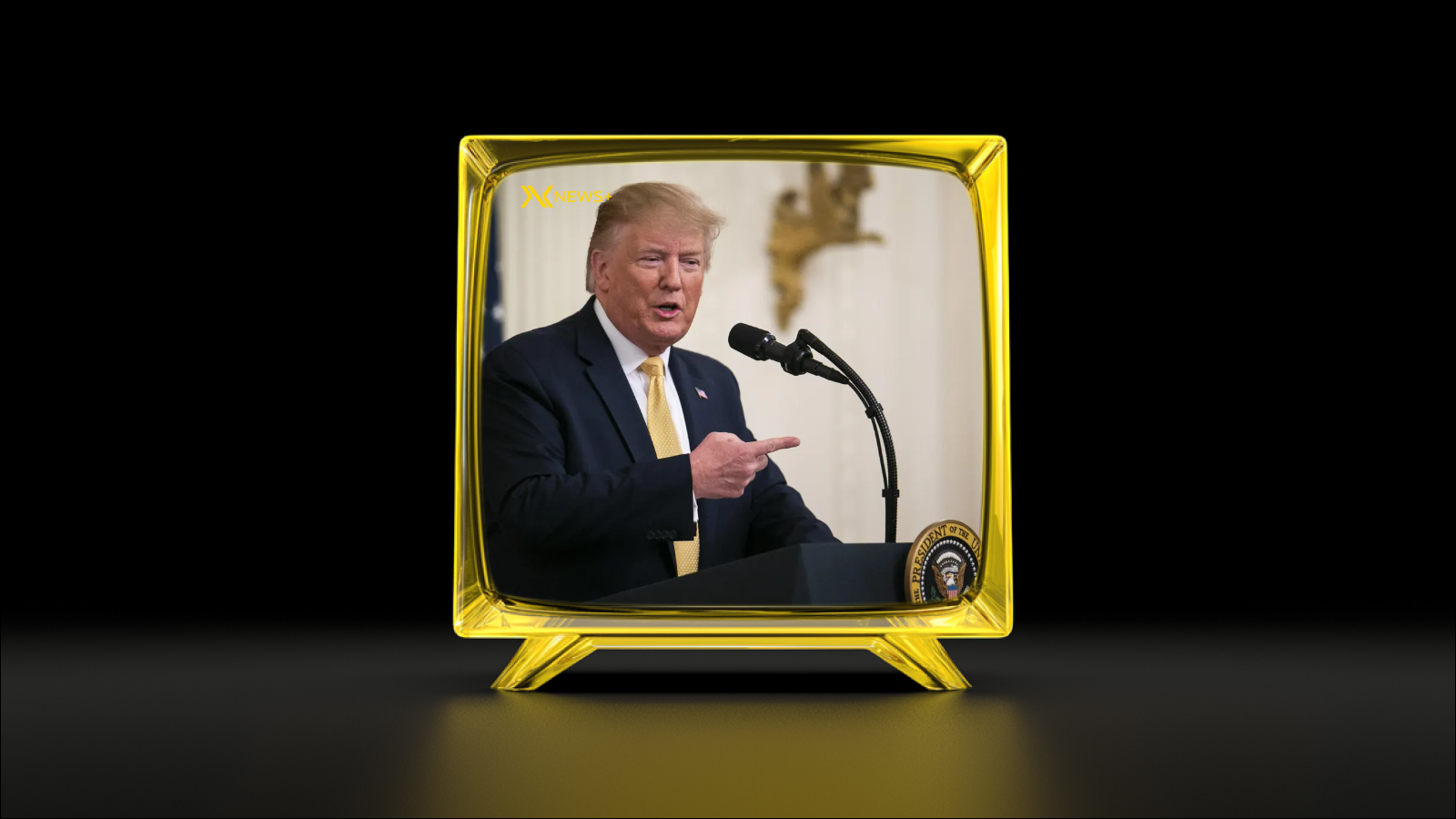Explore the vision and industry reaction to a significant plan, its importance, and answers to frequently asked questions in this insightful blog post.
The Trump Administration Plans to focus on cryptocurrency signal a significant shift in the national agenda, reflecting an increasing recognition of the importance of digital currencies in the modern economy. As the administration outlines its roadmap, it emphasizes the need for regulatory frameworks that not only foster innovation but also protect consumers and ensure market integrity.
This prioritization of cryptocurrency is rooted in the understanding that blockchain technology has the potential to transform various sectors, from finance to supply chain management. By setting clear policies and guidelines, the administration aims to create an environment conducive to growth and sustainability within the crypto landscape.
Moreover, this approach seeks to position the United States as a leader in the digital economy, allowing the country to harness the benefits of technological advancements while mitigating the risks associated with cryptocurrency volatility and scams. The broader implications of these plans could reshape investment strategies, regulatory practices, and overall public perception of digital assets.
As stakeholders from different sectors closely monitor these developments, it becomes evident that the upcoming changes could have far-reaching consequences, not only for the financial markets but for everyday consumers as well. The landscape of currency and investment is evolving, and the Trump Administration Plans signify a crucial step toward embracing this change.
The Vision Behind the Plan
The Trump Administration Plans to establish a robust framework for cryptocurrency is aimed at fostering innovation while ensuring regulatory compliance. At the core of this initiative is a vision to position the United States as a leader in the global cryptocurrency landscape.
One of the key objectives is to create a regulatory environment that is both favorable to cryptocurrency businesses and sensitive to the need for consumer protection. This dual approach aims to stimulate economic growth while maintaining the integrity of financial systems.
Furthermore, the administration emphasizes the importance of collaboration between government entities and industry stakeholders. By working together, they hope to craft policies that support technological advancement without stifling growth. This vision extends to the development of blockchain technologies, which hold the promise of enhancing transparency and security across various sectors.
The Trump Administration Plans are about laying a foundational infrastructure that not only encourages investment but also builds public trust in cryptocurrencies. With a strategic focus on education and awareness, the administration seeks to inform citizens about the benefits and risks associated with digital currencies, fostering a more informed and engaged user base.
Why This Matters
The Trump Administration Plans to prioritize cryptocurrency has far-reaching implications for the U.S. economy and its global standing. By embracing digital currencies, the administration underscores its commitment to technological innovation and financial modernization, which could enhance the country’s competitiveness in the rapidly evolving financial landscape.
Additionally, the initiative may lead to more regulatory clarity around cryptocurrencies, fostering a safer environment for investors and industry players. This is crucial as the cryptocurrency market has faced significant volatility and uncertainty, often deterring potential investors.
Moreover, the focus on cryptocurrency could facilitate greater financial inclusion. By providing access to digital financial systems, particularly to unbanked and underbanked populations, this move could potentially revolutionize how individuals partake in the economy.
As nations worldwide race to develop their own digital currencies, the Trump Administration Plans signify an acknowledgment that the future of finance is digital. By taking a proactive approach, the U.S. can better position itself in a global economy increasingly defined by blockchain and cryptocurrency technologies.
Industry Reaction
The reaction from industry leaders regarding the Trump Administration Plans to prioritize cryptocurrency has been mixed, reflecting both optimism and skepticism. Many stakeholders in the cryptocurrency ecosystem view this initiative as an opportunity for greater legitimacy and mainstream acceptance.
Supporters argue that government involvement could lead to clearer regulations, fostering innovation and attracting significant investment. According to several industry experts, such clarity is essential for the rapid evolution of blockchain technologies and related financial products.
However, there are also concerns within the industry. Some critics worry that increased regulation could stifle the decentralized nature of cryptocurrencies, which is one of their most appealing features. They fear that heavy-handed policies might deter new startups and innovation in the space.
Additionally, advocates for privacy-focused cryptocurrencies express apprehension about how regulations will impact user privacy and anonymity, fundamental principles that drove the initial adoption of blockchain technologies.
While the Trump Administration Plans have the potential to reshape the crypto landscape significantly, a balanced approach will be necessary to nurture innovation while ensuring compliance and security within the rapidly evolving market.
Conclusion
The Trump Administration Plans to prioritize cryptocurrency as part of its national agenda represent a significant shift in the nation’s approach to digital finance. This initiative has the potential to reshape not only the financial landscape but also the regulatory framework governing cryptocurrencies. By recognizing the importance of this evolving technology, the administration is attempting to foster innovation while ensuring consumer protection and national security.
As industries adapt and stakeholders respond, ongoing discussions will be vital in shaping the future landscape of cryptocurrency in the United States. The ability to strike a balance between encouraging technological advancement and safeguarding against potential risks will define the success of these plans. Observers will be keen to witness how these initiatives unfold and their long-term implications for both the economy and the regulatory environment.
Disclaimer
The information provided in this article regarding the Trump Administration Plans is for informational purposes only and should not be construed as financial, legal, or investment advice. Cryptocurrency markets are highly volatile, and any investment in cryptocurrencies involves significant risk. Readers are advised to conduct their own research and consult with a qualified professional before making any financial decisions related to cryptocurrency. The views and opinions expressed in this article do not necessarily reflect those of the authors or any affiliated organizations.
Frequently Asked Questions
What are the main objectives of the Trump Administration regarding cryptocurrency?
The main objectives include establishing regulatory frameworks, promoting innovation, and ensuring national security while addressing potential risks associated with cryptocurrency.
How does the Trump Administration’s focus on cryptocurrency impact US economic policy?
Focusing on cryptocurrency may lead to the development of favorable regulations that could encourage investment and technological advancements in the financial sector, influencing broader economic policy.
What are the potential benefits of prioritizing cryptocurrency at a national level?
Potential benefits include increased financial inclusion, fostering innovation and technology advancements, attracting investments, and improving the efficiency of financial transactions.
What challenges might the Trump Administration face in implementing cryptocurrency policies?
Challenges include regulatory hurdles, concerns about security and fraud, international competition, and the need for public education on cryptocurrency.
How could prioritizing cryptocurrency affect consumers in the US?
Consumers may benefit from potentially lower transaction fees, faster payments, and increased access to financial services, but they may also face new risks and regulatory measures.
What role will the public sector play in the Trump Administration’s cryptocurrency agenda?
The public sector is likely to focus on creating a regulatory environment that balances innovation with consumer protection, as well as collaborating with private enterprises to foster industry growth.
In what ways might global cryptocurrency trends influence the Trump Administration’s approach?
Global trends such as increasing adoption, innovative blockchain technologies, and important regulatory developments in other countries could shape the US policies to remain competitive and aligned with international norms.





